Anouk Aimée, Oscar-Nominated “La Dolce Vita” Actress, Dead at 92
- Oops!Something went wrong.Please try again later.
- Oops!Something went wrong.Please try again later.
The French actress's many other films included '8 ½', 'Lola' and 'A Man and a Woman'
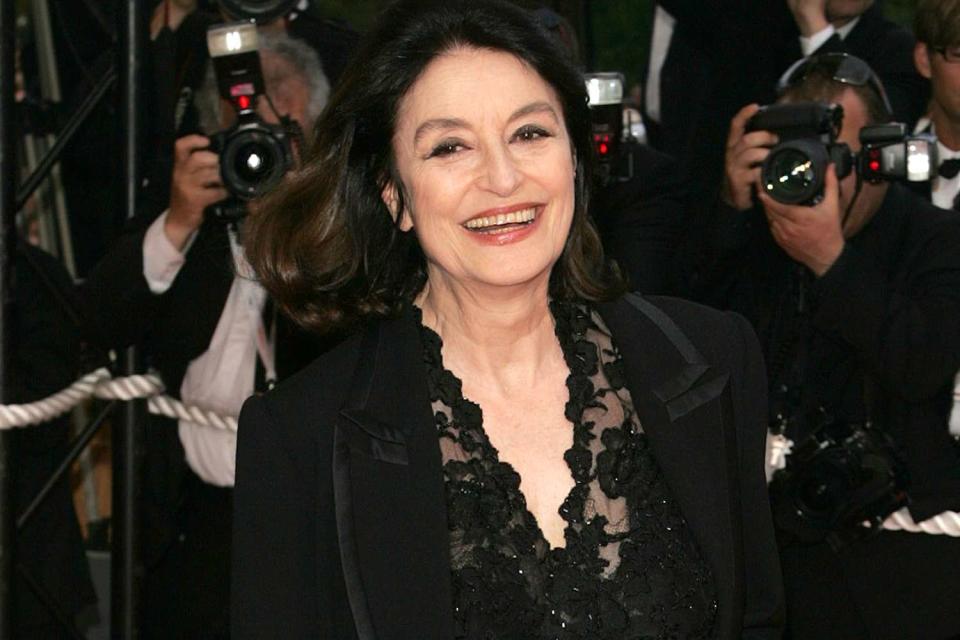
Peter Kramer/Getty
Anouk Aimée in 2006.Anouk Aimée has died at the age of 92.
The star's daughter Manuela Papatakis announced the news on Instagram June 18, writing, "With my daughter, Galaad, and my granddaughter, Mila, we are immensely saddened to announce the decease of my mother, Anouk Aimée. I was at her bedside when she passed away this morning at her home in Paris. With infinite love."
A prolific actress, Aimée appeared in over 70 films. Some of her most iconic roles were in Federico Fellini's La Dolce Vita and 8½ and Claude Lelouch’s A Man and a Woman, for which she was a Best Actress Oscar nominee.
Aimée was born Nicole Françoise Florence Dreyfus in Paris in 1932. Her mother was Catholic and her father was Jewish, and although she was raised in the former religion, she converted to Judaism as an adult. In her youth, she studied dance, and for a time during World War II, she attended an English boarding school.
Related: Paying Tribute to the Celebrities Who Have Died in 2024
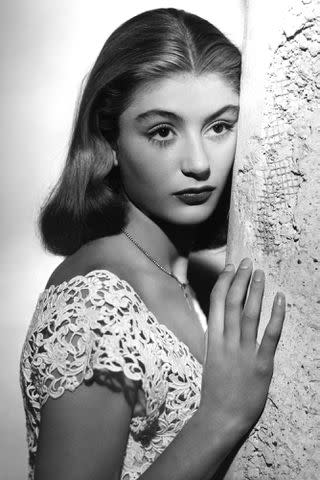
Silver Screen Collection/Getty
Anouk Aimée in 1955.Aimée’s film debut came at age 14 in the movie The House Under the Sea. She was discovered walking down the street with her mother. They were approached by director Henri Calef.
“He said, ‘Would you like to make a film?’” she remembered, speaking to the Los Angeles Times in 2002. Her character’s name was Anouk, and she adopted that name, but no last name.
In 1949, she appeared in The Lovers of Verona, and screenwriter Jacques Prévert suggested she use the last name Aimée, which means beloved in French. “He said when you are going to be 40, you cannot be called Anouk alone,” she told the Times.
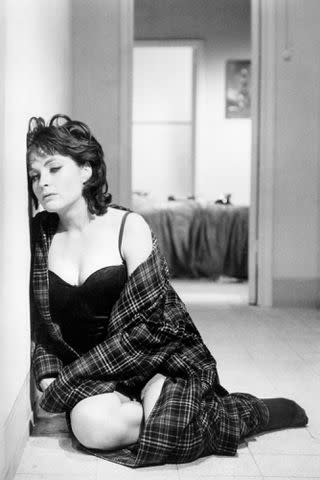
Silver Screen Collection/Getty
Anouk Aimée in 1960's 'La Dolce Vita'Her breakthrough came in 1960’s La Dolce Vita. She played Maddalena, a rich and bored heiress. “Before I met Fellini... I didn’t realize what acting was,” she told theTimes. He taught her to loosen up.
“Acting was part of our everyday life,” she explained. “What embarrassed me before was that a lot of [actors] think of themselves seriously. That bored me. But with Fellini and [costar] Marcello Mastroianni, it was a big festival, a beautiful party. From then I began to love [acting].”
She worked with him again in 8½, playing the estranged wife of fictional director Guido Anselmi. She trimmed her long eyelashes at the director’s request to look less alluring for the role. The film won the Oscar for best foreign language film.
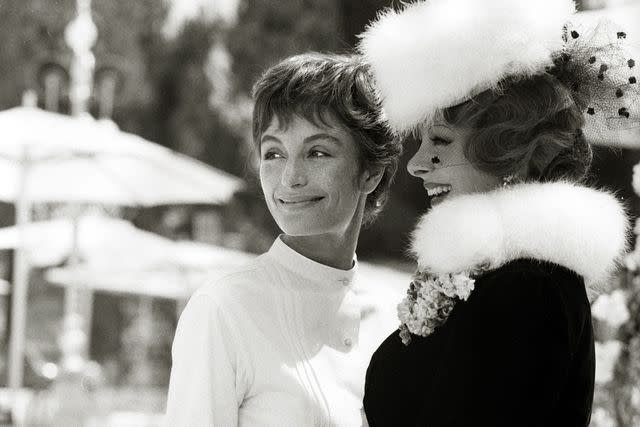
HA/THA/Shutterstock
Anouk Aimée (left) and Sandra Milo in '8½.'She won a BAFTA for 1961’s Lola, in which she played the title cabaret dancer. The film was directed by Jacques Demy, who was making his feature debut and wrote the part specifically for her.
“When Jacques gave me Lola, it was a marvelous gift,” Aimée told legendary director Agnés Varda (who was Demy’s widow) in a 1995 interview. “Lola is such a part of me that I can’t tell which part is her and which is me. We’ve grown so close that we mimic each other.”
Her biggest role came in 1966’s A Man and a Woman, in which she played a young widow who meets a young widower at her child’s boarding school. The New York Times wrote of the movie after her Oscar nomination was announced, “Its star, dimly recalled as an actress of incidental impact in ‘big pictures’ like La Dolce Vita and 8½, is dramatically revealed through the fresh, romantic insight of this ‘little’ picture as what a woman is — a woman to remember.” The movie won the Oscar for best foreign language film, and Aimée was awarded a Golden Globe for her performance.
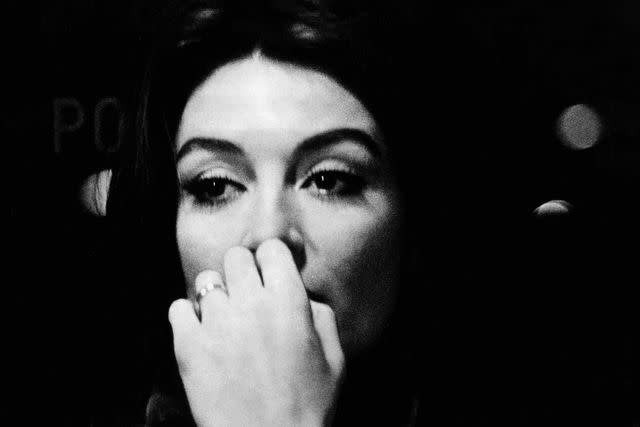
Kobal/Shutterstock
Anouk Aimee in 'A Man and a Woman'In 1986, the director and cast returned with the sequel A Man and a Woman: 20 Years Later. Aimée was thrilled to go back. “First I wanted very much to work with Claude again, to re-enact our love story, the three of us,'' she told The New York Times at the time. ''Also the theme of rediscovering a man with whom I had been in love 20 years ago and of being wise and secure enough to make it work was an irresistible fantasy to me.''
She liked that her character had grown for the better over the course of 20 years, making it possible for her to accept love. ''It's true in real life,'' she told the outlet. ''I may still not be good, but I'm far better.'' In 2019, they released a third film in the series, The Best Years of a Life.
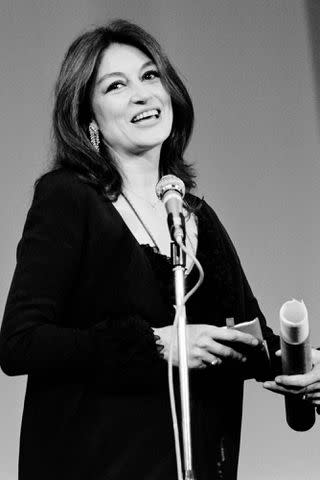
RAPH GATTI/AFP via Getty
Anouk Aimée in 1980.Other roles for Aimée included 1968’s One Night... A Train, 1969's Justine and The Appointment, 1981’s Tragedy of a Ridiculous Man and 1984’s Success Is the Best Revenge. She won best actress at the 1980 Cannes Film Festival for A Leap in the Dark. She continued to act into her later years, including roles in 1994’s Prêt à Porter (directed by Robert Altman), 2006’s Hotel Harabati and 2010’s Paris Connections.
She received an honorary César Award — France’s highest film honor — in 2003.
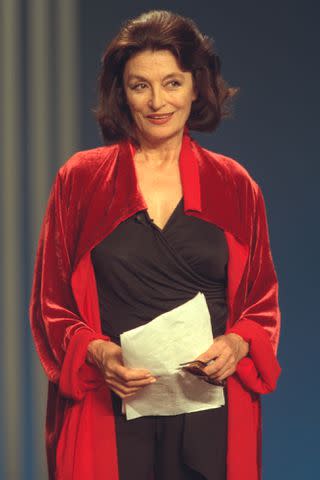
THIERRY ORBAN/Sygma via Getty
Anouk Aimée in 1999.Aimée was married four times. She was married to Edouard Zimmermann from 1949 to 1950. In 1951, she married Nico Papatakis; they shared daughter Manuella Papatakis, who also became an actress. They divorced in 1954. In 1966 she married Pierre Barouh, who had played her deceased husband in A Man and a Woman; they split in 1969. She was married to British actor Albert Finney for eight years, from 1970 to 1978. The marriage ended when Aimée became involved with Ryan O’Neal.
Speaking with The Guardian in 2007, she addressed criticism that despite her many films, her career wasn’t as big as it could have been. "Oh come on — it hasn't been an unimpressive career," she said. "If you look at the number of projects I've been involved in, the people I've worked with... But it's perhaps true that I haven't always made the right choices. I've taken parts I didn't particularly like because I wanted to work with the director — Altman, for example. But there's very little that I actually regret doing; I had to do most of it, I needed the money. There are one or two things I could have said yes to, though. That's probably true." The part she thought was the biggest mistake to turn down was the female lead in 1968’s The Thomas Crown Affair, which went to Faye Dunaway.
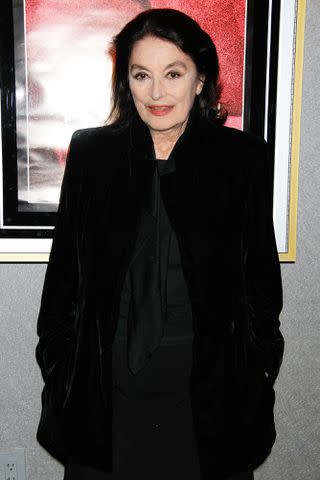
Laura Cavanaugh/Getty
Anouk Aimée in 2012.She was happy she could keep acting and was always looking for meaty parts. "I'm not used up, not yet. I still have things to say,” she told the outlet. “Although, in fact, the secret — it was Fellini who taught me this — is that the most important thing of all is to listen. Just listen, to what the other characters say. And don't take it too seriously.” She added that she had "no regrets.”
Aimée is survived by her daughter.
For more People news, make sure to sign up for our newsletter!
Read the original article on People.

